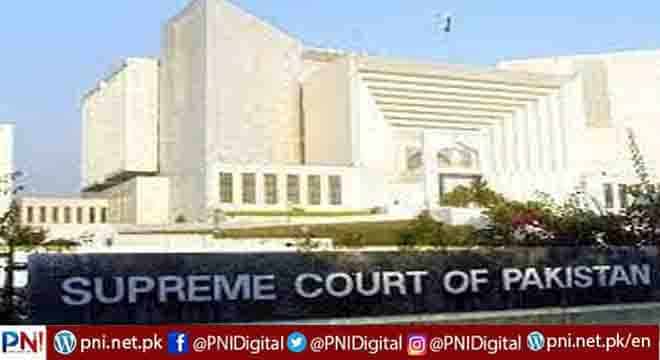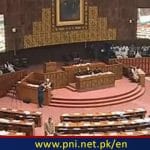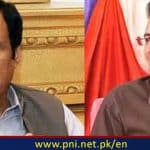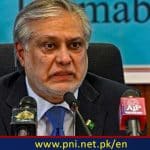ISLAMABAD, Mar 10 (APP): The Supreme Court in its judgment on Thursday stated that the ordinances could only be promulgated in respect of emergent matters because this alone was what the Constitution permitted.
A 30-page judgment authored by Justice Qazi Faez Isa in petitions filed by 581 individuals against the Sindh High Court order challenging the Income Support Levy Act, 2013 and the Income Support Levy sought to be recovered pursuant to the Act.
The court declined leave to appeal and consequently dismissed petitions but with no order as to cost as these were the first cases of their kind before this court.
The judgment stated, “There is also another way to enact legislation.
The President and Governors may promulgate ordinances, but their power to promulgate ordinances is circumscribed by the Constitution.
The President may only promulgate an ordinance in respect of any matter in the Federal Legislative List, when neither the Senate nor the National
Assembly is in session, and can only do so when ‘circumstances exist which render it necessary to take immediate action.’ And, provincial governors may promulgate an ordinance in respect of any matter which is not mentioned in the Federal Legislative List, when the concerned Provincial Assembly is not in session, and can only do so when ‘circumstances exist which render it necessary to take immediate action.’ In the absence of even one of the stated preconditions neither the President nor the Governors can promulgate ordinances. Ordinances may only be promulgated in respect of emergent matters because this alone is what the Constitution permits. However, since an ordinance expires after a few months, unless it is earlier set aside, an ordinance should avoid creating long term rights or liabilities, because on its expiry/repeal it may leave behind an imbroglio.”
It further stated, “We may conclude by stating that each and every word of the Constitution, and the methodologies and procedures prescribed therein, must be strictly adhered to. When this is done it dissipates misgivings and mistrust, and steers away from pitfalls. This also avoids wastage of time, money and effort, as witnessed in this case. History is testament to the fact that whenever the Constitution is violated it disrespects the people for whom it was made. Constitutional transgressions invariably have disastrous ramifications which, as we have learnt to our peril, undermine democracy and national unity.”
The order further read that the very first Article of the Constitution stated that ‘Pakistan shall be a Federal Republic and the Islamic Republic of Pakistan is a representative democracy where the people act through their elected representatives. The directly elected representatives of the people are the members of the National Assembly and of the four provincial assemblies.
The members of the Senate are in turn elected by those who the people had elected. The framers of the Constitution gave equal representation in the Senate to each province. This balance was struck in the aftermath of the
break-up of Pakistan. The Constitution was made with remarkable unanimity by the elected representatives of the peoples of Pakistan after the 1971 debacle. Therefore, it is all the more imperative to ensure that the rights of the peoples of the four provinces are not trespassed or curtailed by sidestepping the Senate in enacting (non Money Bill)legislation, it added.
The order stated, “The Act was repealed by the Finance Act, 2014, which did not retaina saving section with regard to the actions taken under the Act or those which were proposed to be taken in respect of the period that the Act subsisted. This should have brought the matter to an end. However, the petitioner unnecessarily persevered and sought the purported recovery of the Income Support Levy allegedly incurred under the Act before its repeal, and issued hundreds of notices. This in turn compelled the respondents to file hundreds of petitions before the High Court. The petitions were allowed.
But still the petitioner did not relent and filed hundreds of petitions before this Court challenging the judgments of the High Court, even though the impugned judgments had considered the constitutional provisions, and after a comprehensive determination had held that the Act was enacted in contravention of the Constitution.”








